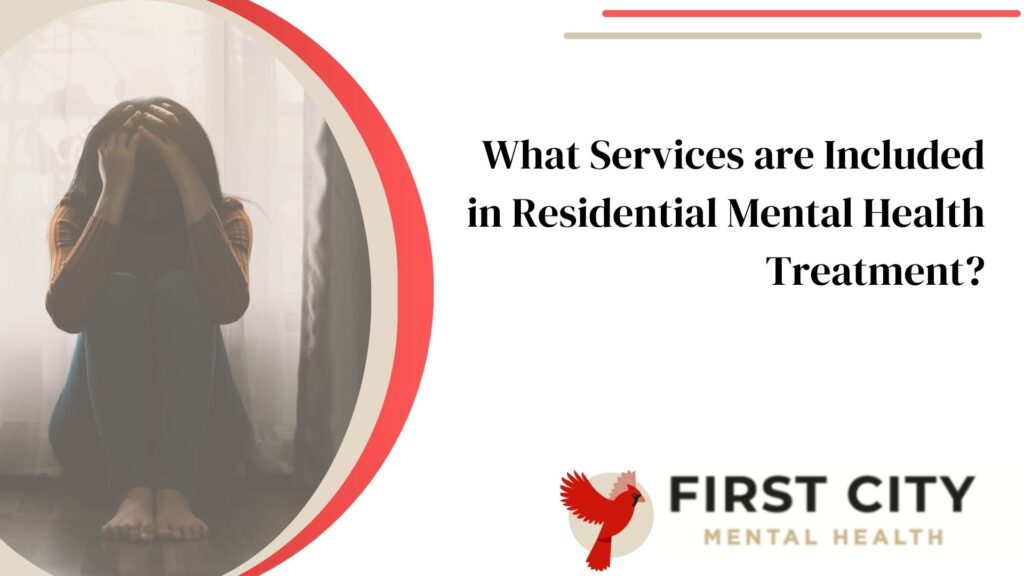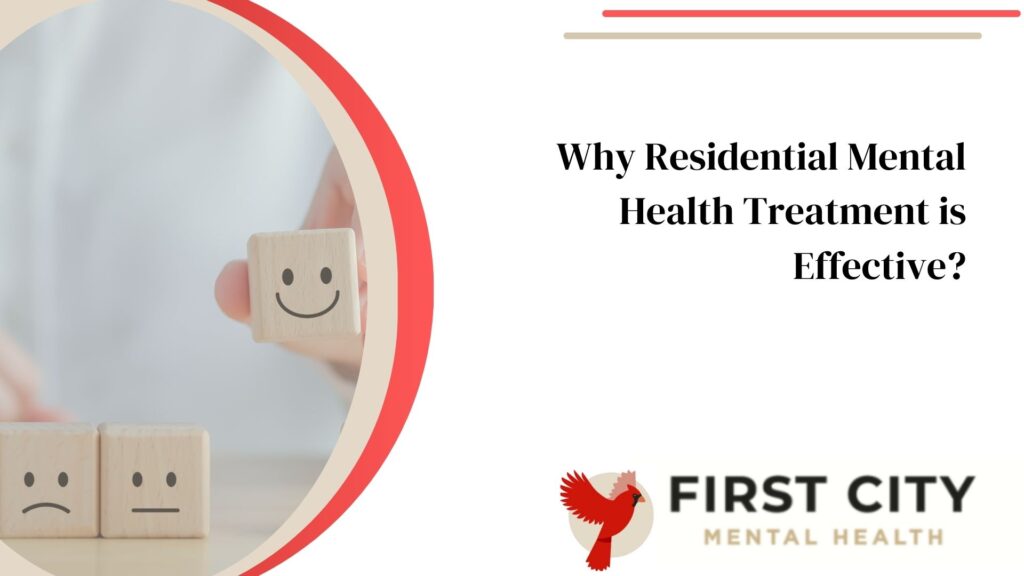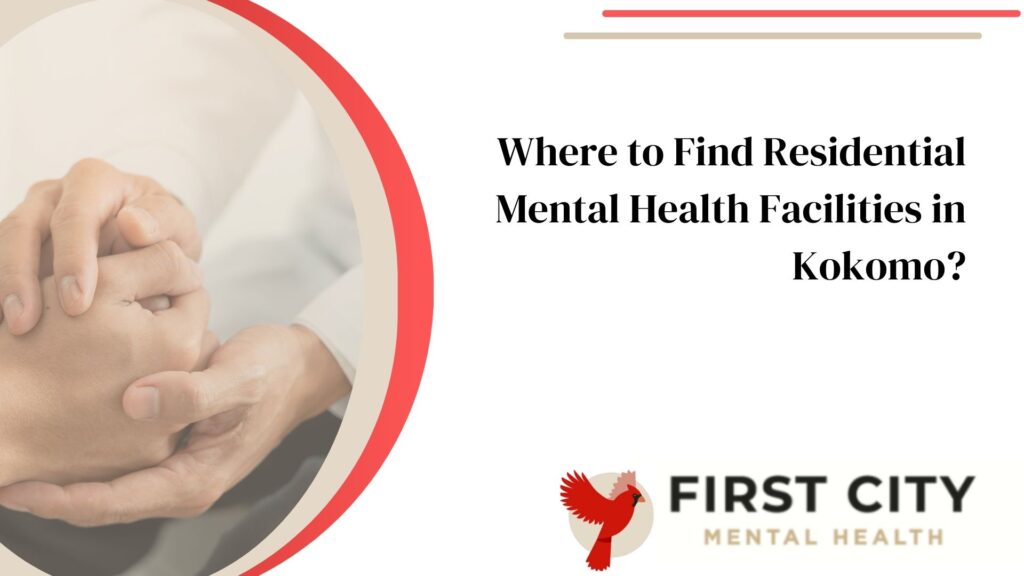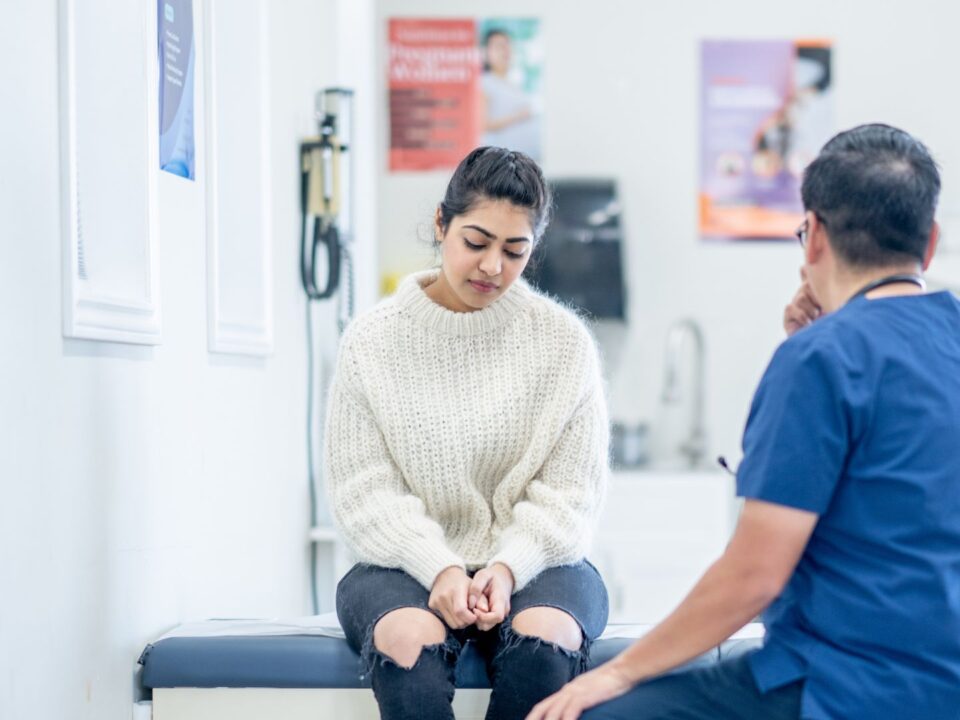
What to Expect from a Partial Hospitalization Program?
August 8, 2025
How Do Residential Mental Health Programs Work in Kokomo?
August 13, 2025Struggling with mental health issues can feel like an uphill battle, especially when standard outpatient treatments don’t seem to make a difference. Imagine finding a place where you are supported 24/7 by professionals dedicated to helping you manage and overcome your mental illness.
Residential treatment centers provide 24-hour care for adolescents, teens, and young adults who are overcoming mental health challenges, offering a crucial support system for those at risk of self-harm or suicide.
That’s what residential mental health treatment offers – a haven for individuals seeking intensive support to handle their conditions. With around-the-clock care provided by experienced medical professionals, this form of treatment is designed for those who need more than what traditional therapy sessions can offer.
Residential mental health facilities provide a structured environment where every aspect of care is customized to the individual’s needs, including medication management, therapy sessions, and skills training to promote independence and quality of life.
Discover hope here.
Key Takeaways
- Residential mental health treatment provides 24-hour support in a safe place for people with severe mental issues, including access to many kinds of therapy and medication management.
- This treatment includes a wide range of services, such as individual and group therapy sessions, skills training for everyday life, nutritional support, and psychiatric evaluations, to customize care to each person’s needs.
- Individuals stay in residential facilities for 14-21+ days or more, depending on their condition. There, they work closely with healthcare professionals through intensive daily programs created for recovery and improving well-being.
What Are the Advantages of Residential Mental Health Treatment?
Residential mental health Indiana treatment offers 24-hour care in a safe environment, which is crucial for individuals working through complex mental health conditions. This comprehensive approach includes security, nursing staff, and access to individualized treatment plans crafted to meet each person’s unique needs.
With around-the-clock support, clients receive immediate attention and assistance, ensuring their journey towards recovery is well-supported.
Another significant advantage is the structured daily schedule of 6-8 hours of therapeutic programming. This intensive treatment regimen might encompass various therapies, such as family therapy, group therapy, and recreational therapy.
Such an immersive setup helps clients develop coping skills, foster healthy relationships, and work on personal goals within the secure confines of residential treatment facilities. Transition support services further aid those detoxing from substance abuse or other co-occurring disorders, promoting a smoother shift back into everyday life while maintaining focus on long-term rehabilitation goals.
What Services are Included in Residential Mental Health Treatment?

Understanding the advantages of residential treatment facilities for mental health residential Indiana sets the stage for exploring the specific services offered. These facilities provide comprehensive care to address various aspects of an individual’s well-being.
- Medication Management: Experts closely monitor and adjust medications to ensure optimal effectiveness while minimizing side effects, which is crucial for managing the symptoms of specific disorders.
- Individual Therapy: One-on-one sessions with a therapist help residents understand and work through personal issues, contributing to individual growth and healing.
- Group Therapy Sessions: Offering a community aspect, these sessions allow sharing experiences and learning from others facing similar challenges, promoting a sense of belonging.
- Skills Training: Programs focus on developing life skills and coping strategies essential for independent living and higher-level functioning in daily life.
- Daily Chef-Prepared Meals and Snacks: Nutrition plays a vital role in mental health; thus, providing balanced meals supports overall wellness.
- Nutritional Counseling & Support: This service ensures residents receive guidance on eating habits supporting mental health recovery, directly addressing issues like eating disorders.
- Psychiatric Evaluation and Follow-ups: Regular assessments help track progress and adjust treatment plans to fit the needs of adolescents, young adults, and families.
- Comprehensive Assessment: Initial evaluations give a complete picture of an individual’s mental health status, guiding the development of a personalized treatment approach.
These services offer support beyond what is typically available in other treatment programs or home environments. They aim to foster recovery in a structured setting where individuals can focus entirely on their well-being with professional support at every step.
How Does Residential Mental Health Treatment Work?
Moving from understanding the services involved, it’s crucial to explore how residential mental health treatment operates to provide support and care for those in need. In a residential treatment facility, patients receive comprehensive care tailored to their conditions.
They live within the facility for a period typically ranging from 14-28 days, depending on their individual needs. This immersive environment allows for around-the-clock monitoring and support by healthcare professionals skilled in addressing severe mental illnesses.
During their stay at a residential treatment center, individuals engage in daily therapeutic programs lasting between six and eight hours. These programs are designed to address both psychological and behavioral aspects of mental illness through a combination of individual therapy sessions, group discussions, medication management if needed, and various types of supportive therapies such as cognitive-behavioral therapy (CBT).
Each patient works with a team to create a personal treatment plan that outlines specific goals and interventions to facilitate recovery and improve overall well-being.
Mental health residential Kokomo programs offer a structured environment where healing can begin.
When to Consider Residential Mental Health Treatment?
For individuals grappling with a severe mental health condition necessitating intensive care or detoxing from co-occurring disorders and substance use, residential mental health treatment is crucial.
After stabilization at a high acuity center or hospital for 5-10 days, residential treatment is essential to facilitate ongoing support and recovery. This option provides a structured environment where individuals can receive comprehensive therapeutic interventions tailored to their needs, promoting long-term wellness and stability.
For those needing specialized care beyond outpatient services, entering a residential mental health Kokomo program should be seriously considered. It ensures immersive, round-the-clock care during this critical phase of healing.
Why Residential Mental Health Treatment is Effective?

Residential mental health programs are effective because they provide individualized treatment plans developed by professionals. The focus on managing symptoms and achieving independent living ensures patients receive personalized care tailored to their needs.
This level of attention is crucial for effectively addressing mental health conditions, as it allows for continuous monitoring and adjustment of treatment plans based on the individual’s progress.
Access to a wide range of therapeutic and support services is integral to residential mental health treatment and contributes significantly to its effectiveness. By providing these comprehensive resources within the residential setting, patients can access various therapies under one roof.
This approach simplifies the process for individuals seeking more than just traditional therapy and ensures they receive well-rounded care that can address multiple facets of their behavioral health challenges.
What Conditions are Treated in Residential Mental Health Programs?
Many mental health conditions require intensive, round-the-clock care and specialized treatment that can be provided in residential mental health programs. Some of the conditions treated in these programs include:
- Severe mood disorders such as bipolar disorder
- Schizophrenia and other psychotic disorders
- Severe depression with suicidal tendencies
- Co-occurring substance use disorders and addiction
- Eating disorders like anorexia nervosa and bulimia nervosa
- Post-traumatic stress disorder (PTSD) from traumatic events
- Severe anxiety disorders, including panic disorder and obsessive-compulsive disorder (OCD)
Seeking help for any of these conditions through a mental health residential treatment program can provide the comprehensive support needed for recovery.
How Long is Residential Mental Health Treatment?
Residential treatment for mental health typically lasts between 14 to 28 days, providing individuals with an intensive and focused period of care. For those participating in Mental Health Partial Hospitalization (MH PHP), the duration often extends to 30-45 days.
This timeframe allows for comprehensive assessment, personalized therapy sessions, and the development of coping strategies in a supportive environment.
The structured nature of residential mental health treatment caters to individual needs while ensuring a concentrated approach to progress and recovery. During this time, participants can engage in therapeutic activities that promote healing and long-term wellness.
Where to Find Residential Mental Health Facilities in Kokomo?

First City Mental Health Center in Kokomo offers residential mental health facilities treatment programs. The facility is committed to providing the highest levels of care and patient success, catering to individuals struggling with various mental health conditions.
This reputable center provides a supportive and structured environment for those seeking dedicated care, making it an ideal choice for individuals interested in mental health residential treatment in Kokomo.
Conclusion
Residential mental health facility treatment offers around-the-clock care for individuals with serious mental illness. The program provides intensive clinical programming and individualized treatment plans, including therapy, medication, and skills training.
With 24-7 security and a dedicated team of professionals, the goal is to help individuals manage their symptoms and live independently. Aftercare planning is crucial for sustained recovery.
Patients can continue their progress after leaving the program by identifying support systems and making lifestyle changes. The strategies provided in residential mental health treatment are practical and efficient and potentially impact individuals’ lives significantly.
FAQs
1. What is residential mental health treatment?
Residential mental health treatment offers a supportive environment where individuals receive constant care and therapy for their mental health issues in a residential facility.
2. Who can benefit from residential treatment programs?
Individuals struggling with severe mental health conditions, including those experiencing self-harm tendencies or needing intensive support, can find relief and improvement through residential treatment programs.
3. How does a residential mental health facility in Indiana differ from outpatient services?
A residential mental health facility in Indiana provides around-the-clock care within a structured environment, unlike outpatient services that offer treatment sessions people attend from their homes.
4. What are some benefits of choosing a residential program for mental health in Kokomo?
Choosing a residential program for mental health in Kokomo ensures personalized care plans, access to multiple therapy options, and the chance to focus on recovery away from daily stressors.
5. Can families be involved in the treatment process at these facilities?
Many residential facilities encourage family involvement through scheduled visits and family therapy sessions to effectively support the patient’s recovery journey.






